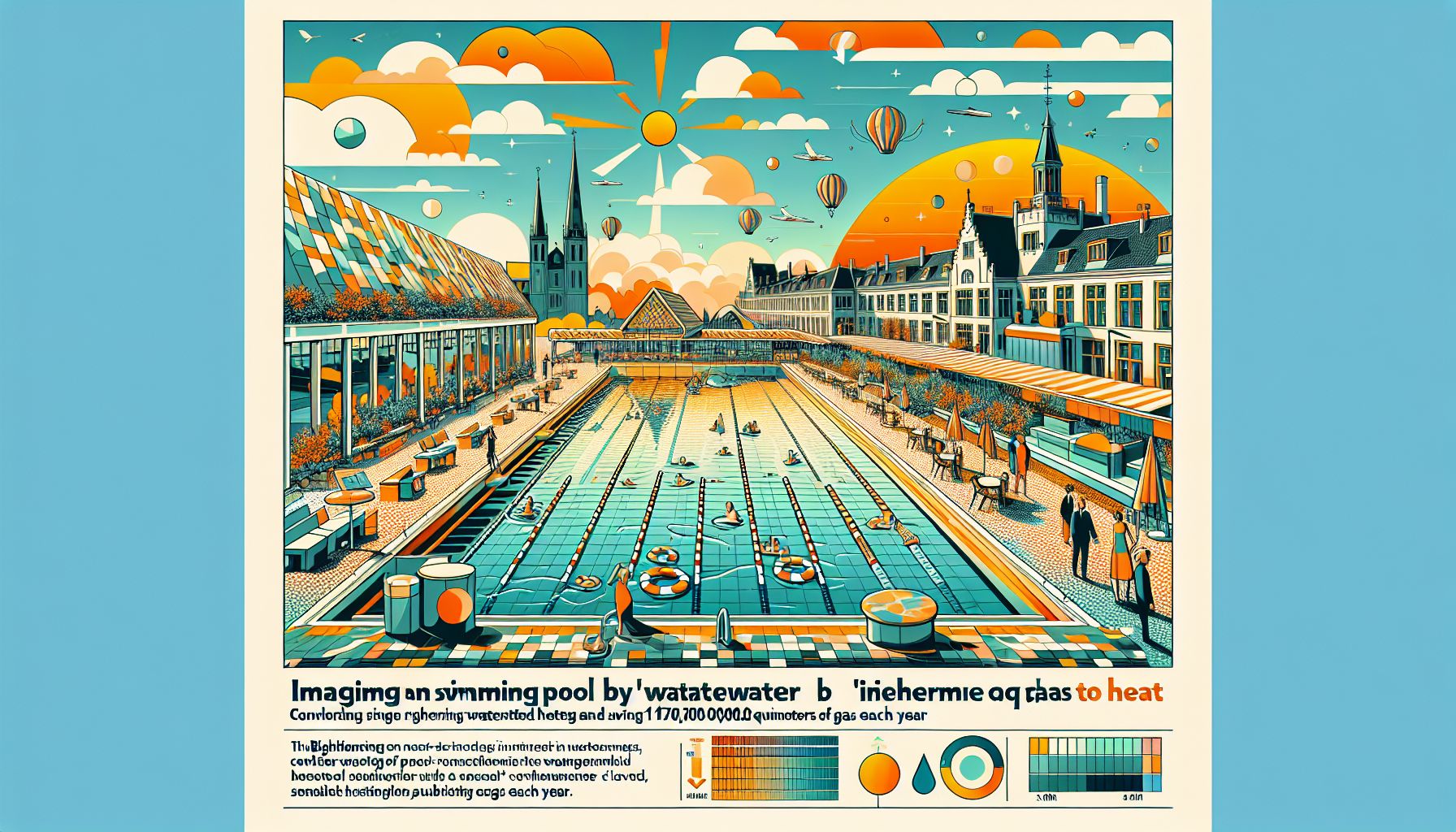Scheveningen Pool Pioneers Eco-Friendly Heating with Wastewater

Scheveningen, Monday, 9 September 2024.
De Blinkerd swimming pool in Scheveningen, Netherlands, has transitioned from natural gas to wastewater heating, saving 170,000 cubic meters of gas annually. This innovative ‘riothermie’ technique marks a significant step in sustainable public utility management.
Innovative Riothermie Technique
The heating system, known as ‘riothermie’, operates by leveraging the heat from wastewater. Underneath the ground, two pipelines are installed. One pipeline carries warm wastewater, while the other transports a cooling fluid. The heat from the wastewater is transferred to the cooling fluid, which then transfers the heat to heat pumps located in the pool’s machine room. Subsequently, these heat pumps further elevate the temperature to meet the pool’s heating requirements. The cooled wastewater is then returned to the sewage system, completing the cycle.
Environmental and Economic Impact
By implementing this system, De Blinkerd is projected to save approximately 170,000 cubic meters of natural gas each year, equivalent to the annual gas consumption of 170 households. This reduction in gas usage not only cuts down on greenhouse gas emissions but also represents significant cost savings for the facility. The initiative is part of a broader effort by the municipality of The Hague to promote sustainability and reduce carbon footprints in public amenities.
Municipal Leadership in Sustainability
According to Robert Barker, the environmental alderman, The Hague is leading the way with this pioneering project. He noted, ‘In the Netherlands, only a handful of swimming pools have transitioned away from gas, and we are doing it in a unique manner by utilizing wastewater heat. This project underscores our commitment as a municipality to combat the climate crisis.’
Enhancements in Facility Efficiency
In addition to the innovative heating system, De Blinkerd has undergone several other upgrades to boost energy efficiency. These include the installation of LED lighting throughout the facility, insulating glass in the numerous windows, and the use of covers over the pools when they are not in use to minimize heat loss. These measures collectively contribute to a more sustainable and energy-efficient operation.
Community and Sports Engagement
Sports alderman Hilbert Bredemeijer expressed pride in the sustainable advancements, emphasizing the importance of high-quality, eco-friendly sports facilities in encouraging community engagement in sports. He stated, ‘In The Hague, we are investing significantly to make our sports halls, fields, and pools more sustainable. De Blinkerd stands as a prime example of how we are moving towards a future that is both sporty and sustainable.’

